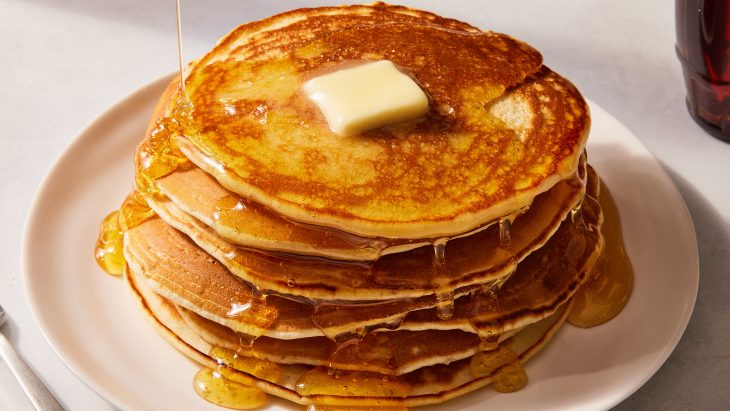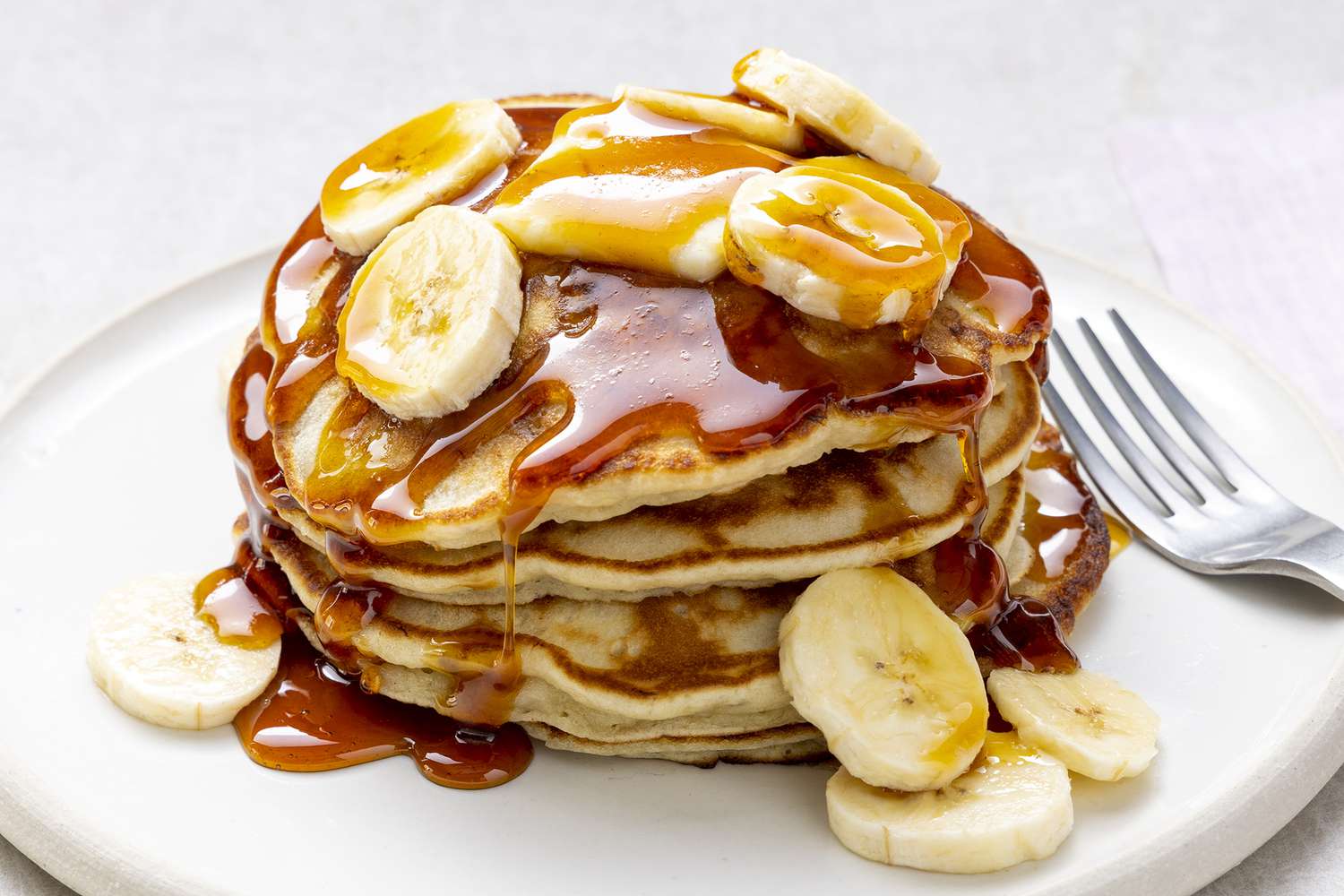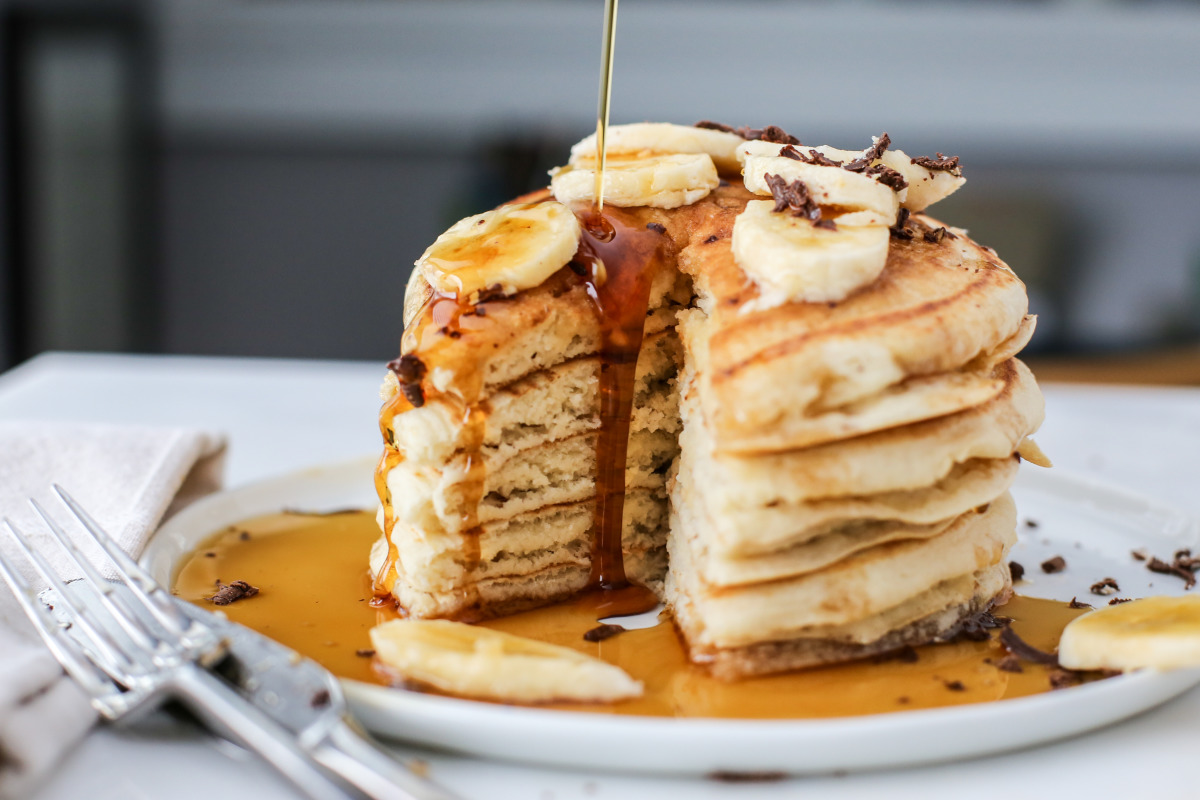
Pancakes are a beloved breakfast dish enjoyed by people around the world. Whether you prefer them plain, topped with syrup, or loaded with delicious toppings, pancakes offer a satisfying and versatile meal option. In this article, we will delve into 19 pancake nutrition facts to help you understand the nutritional profile of this popular breakfast treat.
Caloric Value
The caloric content of pancakes can vary depending on the recipe and ingredients used. On average, a single pancake (approximately 4 inches in diameter) contains around 90 to 100 calories.
Carbohydrates
Pancakes are primarily made from flour, which is a significant source of carbohydrates. A typical pancake contains about 20 to 25 grams of carbohydrates, providing energy for your body.
Protein
While pancakes are not particularly high in protein, they do contain a moderate amount. A single pancake usually provides around 2 to 4 grams of protein, which is essential for muscle repair and growth.
Fat Content
The fat content of pancakes is generally low, especially if made with minimal oil or butter. A single pancake typically contains less than 1 gram of fat.

Fiber
Pancakes are not a significant source of dietary fiber. However, you can boost their fiber content by using whole wheat flour or adding fiber-rich toppings like fruits, nuts, or seeds.
Vitamins and Minerals
Pancakes made with enriched flour can provide small amounts of essential vitamins and minerals, such as iron, thiamin, riboflavin, and niacin. However, the overall nutrient content may vary depending on the recipe and additional ingredients.
Sodium
Pancake batter usually contains a small amount of sodium, but the levels can be influenced by other ingredients, such as baking powder or salt. If you’re watching your sodium intake, consider using low-sodium alternatives or reducing the amount of salt in the recipe.
Added Sugar
Traditional pancakes are typically sweetened with sugar or syrup. While the amount of added sugar varies based on personal preference and toppings, it’s important to be mindful of your overall sugar intake to maintain a balanced diet.
Variations and Toppings
Pancakes offer endless opportunities for creativity and customization. You can experiment with different flour types, such as whole wheat or almond flour, to increase the nutritional value. Additionally, topping your pancakes with fresh fruits, Greek yogurt, nuts, or honey can add extra nutrients and flavor.

Portion Control
While pancakes can be a part of a healthy breakfast, portion control is key. Pay attention to the size of your pancakes and the number you consume to maintain a balanced caloric intake.
Pancake Mixes
Pancake mixes are a convenient option for making pancakes at home. However, it’s important to read the labels and choose mixes that are lower in added sugars and artificial ingredients.
Gluten-Free Options
For individuals with gluten intolerance or celiac disease, gluten-free pancake mixes or recipes can provide a delicious alternative. Look for gluten-free flour, such as rice flour or almond flour, to make pancakes that are safe to consume.
Pancake Syrups
Maple syrup is a classic topping for pancakes. However, it’s important to be mindful of portion sizes as they can be high in sugar and calories. Consider using sugar-free or natural sweeteners like honey or fruit compote as alternatives.
Pancake Nutrition for Kids
Pancakes can be a nutritious option for kids’ breakfast if prepared with wholesome ingredients. Adding mashed fruits or vegetables to the batter can increase their nutrient intake and make pancakes more appealing to young taste buds.
Pancake Nutrition for Weight Loss
If you’re trying to lose weight, pancakes can still be enjoyed in moderation. Opt for whole wheat or oat flour, reduce the added sugar, and top your pancakes with fresh fruits and a sprinkle of nuts for added fiber and healthy fats.
Pancakes and Dietary Restrictions
Pancakes can be adapted to fit various dietary restrictions. For those following a vegan diet, you can use plant-based milk and substitutes for eggs. Individuals with lactose intolerance can opt for lactose-free milk or non-dairy alternatives.
Pancakes as a Source of Energy
The carbohydrates in pancakes provide a quick source of energy, making them a popular choice for athletes or individuals in need of a boost before physical activity.
Pancakes Around the World
Pancakes have variations in different cuisines across the globe. From French crepes to Japanese okonomiyaki, exploring pancakes from different cultures can introduce you to unique flavors and ingredients.
Pancake Fun Facts
Pancakes have been enjoyed for centuries and can be traced back to ancient civilizations like the Greeks and Romans.
The largest pancake ever made was over 49 feet in diameter and weighed over 6,000 pounds.
Pancakes have their own celebration called Pancake Day or Shrove Tuesday in many countries, including the United Kingdom.
Pancakes are often used in fundraising events, such as pancake breakfasts, to support various charitable causes.
Pancake flipping is a popular sport in some countries, where participants compete to see who can flip pancakes the most times in a given time frame.
Conclusion
Pancakes can be a delicious and versatile breakfast option that can be enjoyed by people of all ages. By being mindful of the ingredients, portion sizes, and toppings, you can make pancakes a nutritious part of your balanced diet. Whether you prefer classic buttermilk pancakes or experiment with unique flavors and fillings, pancakes can be a delightful treat to start your day.
Frequently Asked Questions (FAQs)
Can pancakes be part of a healthy diet?
Yes, pancakes can be part of a healthy diet when made with wholesome ingredients, moderate portion sizes, and balanced toppings.
Are there healthier alternatives to traditional pancakes?
Yes, you can make healthier pancakes by using whole-grain flour, reducing added sugars, and adding nutrient-rich toppings like fruits, nuts, or seeds.
Can I freeze pancakes for later use?
Yes, you can freeze pancakes for later use. Allow them to cool completely, place them in airtight containers or freezer bags, and store them in the freezer. To reheat, simply pop them in the toaster or warm them in the oven.
Can pancakes be enjoyed by people with dietary restrictions, such as gluten intolerance or lactose intolerance?
Yes, pancakes can be adapted to fit various dietary restrictions. Gluten-free pancake mixes or recipes can be used for individuals with gluten intolerance, while lactose-free milk or non-dairy alternatives can be used for those with lactose intolerance.
Are there any pancake variations suitable for a vegan diet?
Yes, pancakes can be made vegan-friendly by using plant-based milk and substitutes for eggs, such as flaxseed or applesauce. There are many vegan pancake recipes available that deliver delicious results.
Was this page helpful?
Our commitment to delivering trustworthy and engaging content is at the heart of what we do. Each fact on our site is contributed by real users like you, bringing a wealth of diverse insights and information. To ensure the highest standards of accuracy and reliability, our dedicated editors meticulously review each submission. This process guarantees that the facts we share are not only fascinating but also credible. Trust in our commitment to quality and authenticity as you explore and learn with us.
